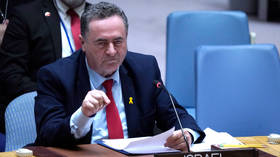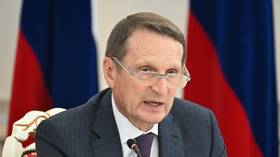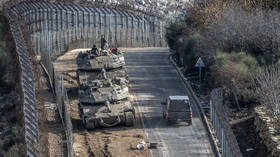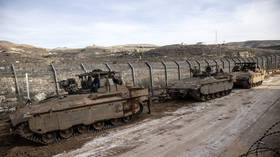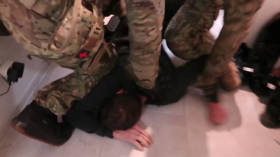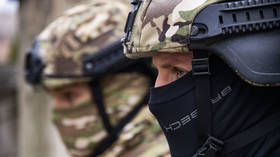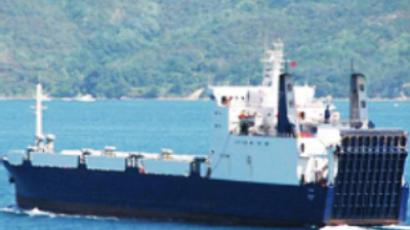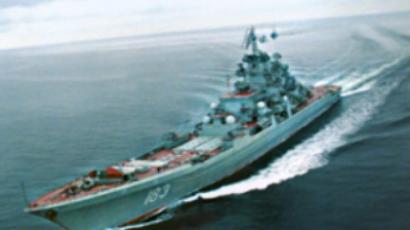Caribbean drills right under U.S.'s nose
The Russian submarine hunter Admiral Chabanenko is heading to Panama for a short visit following joint exercises with Venezuela in the Caribbean. The two navies trained to deal with air attacks, conduct rescue operations and refuel at sea.
The Russian ships arrived in Venezuela last week in an operation widely seen as the Kremlin’s response to the U.S. decision to deliver aid to Georgia aboard warships following the country's conflict with Russia.
However, President Hugo Chavez insists the naval exercises weren't meant as a provocation to the United States or any other nation. Chavez has praised Russia for raising its profile in the Americas, while saying the U.S. Navy’s Fourth Fleet, which has been recently re-activated, poses a threat to Venezuela.
Russia sent the nuclear-powered cruiser Peter the Great, the destroyer Admiral Chabanenko and support ships. They were joined by three Venezuelan frigates for the exercise, which was dubbed ‘Venrus 2008’.
The Russian squadron captained a Venezuelan frigate, while Venezuelan Admiral Luis Morales acted as captain of the Peter the Great.
The exercise involved 1600 Russian navy personnel.
“The exercise was quite a success. All things that had to be tested were tested with good results and in full. Now we have some experience of teamwork with the Venezuelan Navy. If our Navy needs these skills some time in the future, the experience of this exercise will certainly come in handy,” concluded Anatoly Dolgov, captain of the destroyer Admiral Chabanenko.
Soviet ships and planes regularly visited Cuba during the Cold War, but Russian troops have been absent in the region since the Soviet Union dissolved in 1991.
Europeans to replace NATO in Somali anti-piracy mission
A European Union flotilla of six warships will replace the NATO anti-piracy mission off Somalia's coast by mid-December. France, Germany, the UK and Greece will provide the warships, which will begin deploying in the region next week.
Although NATO ships have protected the transportation of nearly 30,000 tonnes of humanitarian supplies, they have been unable to root out piracy off the Somali coast. About a hundred ships have come under attack and forty have been hijacked this year.
The pirates recently freed a vessel belonging to Yemen without receiving compensation. They have promised to release the Ukrainian vessel “Faina” when they receive the ransom.


